
UK Report on Jobs – April 2023
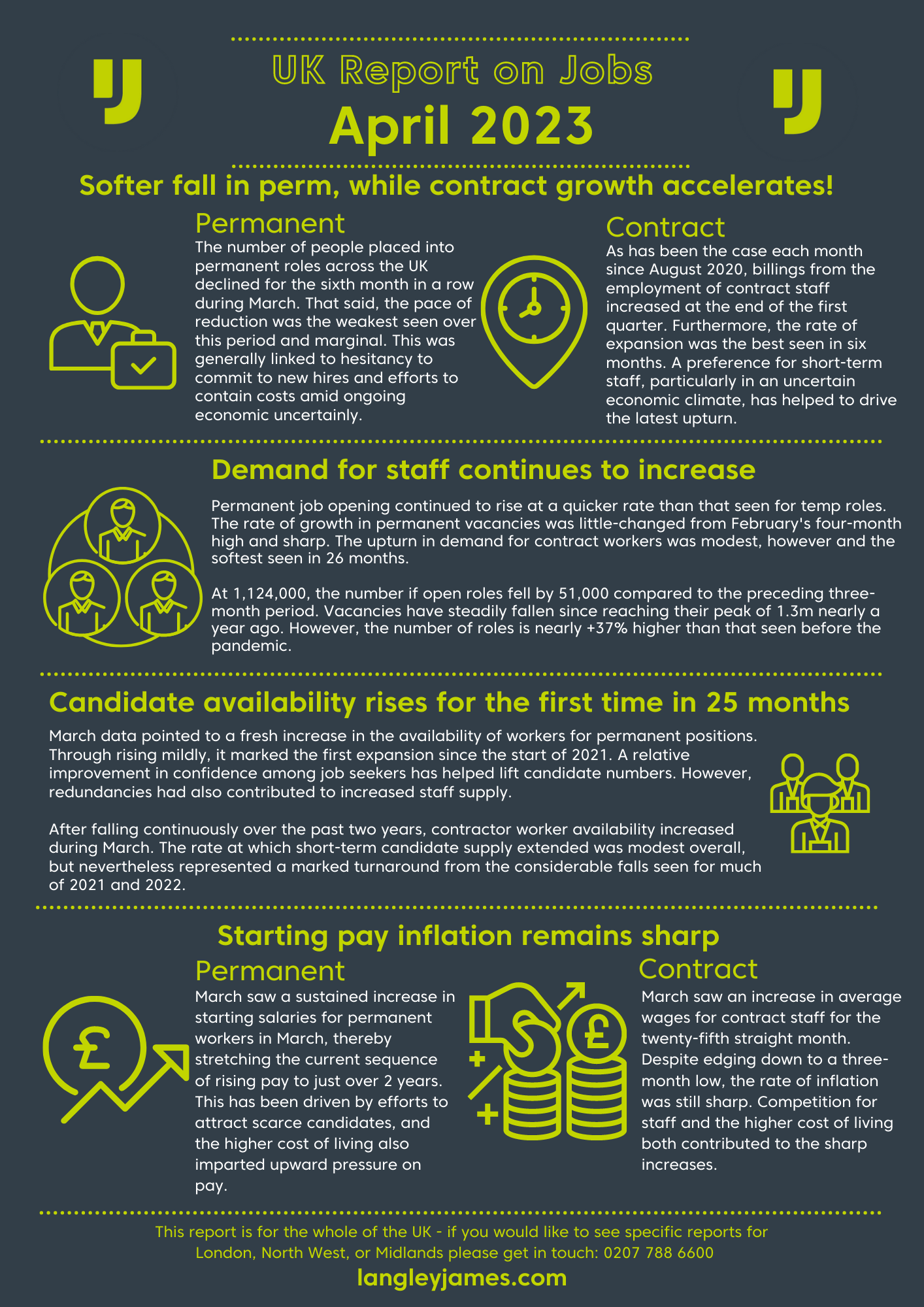



Are you currently looking to hire in IT? If so, there’s a lot to consider. And it may be that the first thing you need to decide is the benefits to you of contract v permanent. Which will you choose when it comes to filling your next IT role? There are advantages and disadvantages of both. Our consultants share their thoughts to help you make the right decision.
A contractor is someone who provides their services to your business. Typically, a contractor is hired for a set period of time, or a set piece of work. A daily rate will be agreed, along with deliverables, deadlines etc. Contractors are usually self-managed and can be left to work independently based on the project brief.
A permanent candidate is an employee that works for you on either a full or part-til basis. They are expected to produce work based on their contract of employment and in return, they are paid a monthly salary on a continuous basis.
When it comes to contract v permanent, it’s important to consider the pros and cons of each. Here’s our top 3 for each –

We’ve been helping companies to recruit the very best in IT since 1999. We can advise you on which route is best and can even give you detailed insight into the IT jobs market. Each month, we produce our IT Salary Guide which looks at average salaries and day rates across all areas of IT. We also produce a monthly Report on Jobs so that you can see what’s happening in the market. As ever, we are here to help. So if you are looking to recruit into your IT team, get in touch with our expert consultants today.

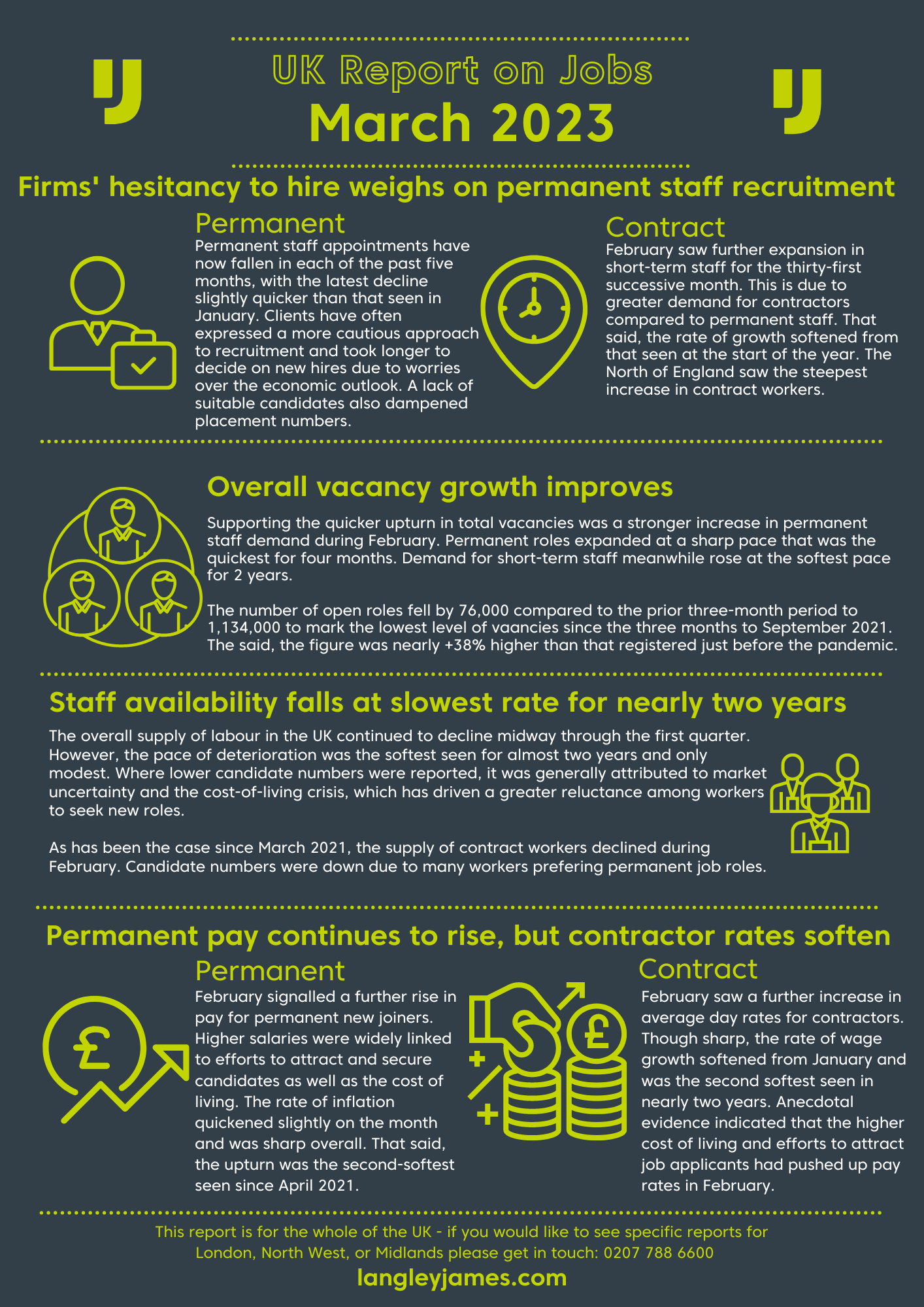

Hiring the best IT people is not enough to ensure success. It’s equally important to ensure that these talented individuals stay on board. How to retain IT staff is a challenge for many companies. They struggle with keeping their top-notch talent engaged and motivated.
The key to successful IT staff retention lies in your environment. It should encourage collaboration, innovation and creativity. Companies should also provide competitive salaries and attractive benefits packages. Therefore ensuring that their IT professionals remain committed and loyal. Additionally, offering training opportunities and career development is key. This can help create a sense of job satisfaction. In turn, leading to better retention rates among your team.
Investing in the professional development of your IT staff is a key factor for success. It’s important to provide them with ample opportunities to grow. And toadvance their careers within your company. By offering employee training, you can give your IT staff the skills they need. Enabling them to become more productive and efficient. You can also offer professional development courses that are tailored to their individual needs. This allows them to gain new skills and knowledge. And this will help them succeed in their current roles. With these opportunities, you can create a culture of learning within your company. And this will lead to greater job satisfaction and higher IT staff retention rates.
But it’s not just about training. If you’re pushing your IT staff to do new projects, it’s going to keep them engaged. But don’t stop there! Encourage them to get more out of the technology you already have. Allow them to also investigate new technologies and how they can evolve the business. They’ll feel like they’re a part of the growth of your company, and they’ll be excited about their job—which means they’ll do it better. And that’s what we call a win-win situation!

Having a competitive IT salary structure is essential for any successful business. It is important to ensure that your IT staff are adequately compensated for their skill level, talents and experience. This will not only help you attract and retain the best talent. Additionally, it will ensure that your company remains competitive in the market.
It is important to review salaries regularly. You need to make sure they are in line with industry standards. Additionally they should reflect the value of each employee’s contributions. It is also important to consider other factors. Things such as cost of living and job market conditions. With a proper salary structure, you can ensure that your IT staff are adequately compensated for their efforts. Therefore making them feel rewarded them for their hard work.
Having the right tools and resources is essential. This ensures that your team can complete their tasks without having to manage around inadequate technology. Having access to the best technology and resources allows teams to be more productive, efficient, and successful. With the right tools and resources, your team will be able to create better results faster and with less effort. This will result in a higher level of satisfaction from both your employees and customers. Investing in adequate tools and resources for your team is an investment that will pay off in the long run.
Building an inclusive IT team is a critical step in retention. Fostering a culture of collaboration, inclusivity, and transparency. Inclusivity. This means that everyone on the team is given an equal opportunity to contribute and be heard. This can be achieved by creating an environment where everyone feels comfortable. Where they can express their ideas and opinions without fear of judgement or criticism.
Therefore, it is important to create an environment where all members feel respected and valued. Regardless of their background or experience level. This can be done by providing regular feedback. Encourage open communication between members, and recognise individual contributions. Additionally, it is important to ensure that everyone has access to the same resources so they can do their best work. Creating a culture of collaboration, inclusivity, and transparency within your IT teams. This way you can ensure that all members are working together towards common goals. And with mutual respect for each other’s skillsets and perspectives.

The success of any business today depends heavily on its ability to retain talented IT staff. As technology continues to evolve, businesses need to stay ahead of the curve and hire the best IT professionals available. The right IT professionals can provide businesses with a competitive edge. Therefore, helping them remain successful in their respective industries.
IT professionals bring a unique set of skills that are essential for any business’s success. They can help businesses develop efficient systems, manage data, and keep up with technological trends. They also have the ability to solve complex problems quickly and accurately. This is key for any business’s growth and development.
Here at Langley James, we know our candidates. We have in-depth knowledge of their experience, down to the individual projects they have worked on, their strengths (and their weaknesses). We have access to those details that you just can’t get from a CV alone.
Our talented and specialised consultants work hard to ensure that any candidates we send you are not only a perfect match for the role but your business. To discuss your IT recruitment needs please call us on 0207 099 4839 or email us: langleyjames@langleyjames.com.
We’d love to hear your views on this. Are you struggling to retain your IT staff? Tweet us @ITRecruitment, or follow us on Facebook or LinkedIn

Is it time that you chose experience over qualifications when looking to secure your next IT hire? We look at the facts.
A 1st Class degree: the hallmark of the ideal candidate… or is it? It’s true that a strong qualification does give candidates a good grounding to build from. And it seems that lots of people still agree with this. The number of people applying to study computer science degrees rose by 13% last year. That’s the biggest increase of any UK university subject!
But is it the right choice for your company. In a market where, when star candidates are available, they are being snapped up fast, it may to time to change your approach.
Why let your competitors snap up all the talent? Could it be time to broaden your search by taking experience into account over and above formal qualifications?
Which is better? Three years working in the IT industry? Gaining in-depth experience in a real-world situation but with no immediately measurable way of proving a level of knowledge? Or three years studying? Gaining tested and proven knowledge of a wide range of systems but with less time for practical application of that knowledge. And what about those candidates who have no formal degree. But years of experience through which they have gained many ‘non-university level’ qualifications in various systems and skills?
It’s believed that more than half of employers still use degree to screen job applicants. But this can mean that they are often overlooking candidates with relevant skills and experience. But there’s something else to consider too. A third of employers agree that university candidates are either ‘fairly’ or ‘very poorly’ prepared for the workplace.

Does this mean that academic qualifications have no place in candidate selection? Not in our opinion. Qualifications remain a measurable indicator of the quality of a candidate. Additionally, they are certainly a sign of commitment to the industry, as well as ambition. But they are not the only measure. To be sure of finding the ideal candidate for your IT role it is becoming more and more necessary to broaden search criteria.
As you know, IT is a uniquely fast-moving industry. Systems that were in place a decade ago are often unrecognisable. It could be argued that the content of a ten-year-old degree is now largely irrelevant. That the knowledge gained through experience since earning that degree has become more important than the degree itself.
So, how can you broaden your criteria for the perfect candidate without opening the floodgates to unsuitable candidates? After all, for a candidate to list a skill on a CV tells you very little about their level of expertise. There are several things to look for when shortlisting for a position:
– Look for candidates who have listed their achievements on their CV’s. This will give you an idea of the level of experience they have a particular area.
– Look for projects that the candidate has led or been involved in.
– If you are looking at a Web Developer’s CV, take time to examine the sample URL’s they have provided.
– Most importantly, we can help you find a candidate who is the best fit for your company and individual role. We will know what you are looking for and will ensure that all the information you need to know about each candidate is provided in addition to the CV.
Of course, formal qualifications will always remain a valuable asset to any candidate. Completing a degree or other qualification takes dedication, an aptitude for the subject and plenty of fresh industry knowledge. However, with dropping numbers of IT graduates (The University and College Union (UCU) report, stated that only 169 computer science courses were available in 2012, down 18% from 2006), and university applications down for a second year running in 2013 according to UCAS, combined with a marked growth in IT vacancies, perhaps it’s time for a change in the criteria by which the ideal candidate is chosen, without having to compromise on quality.
Here at Langley James, we know our candidates. We have in-depth knowledge of their experience, down to the individual projects they have worked on, their strengths (and their weaknesses). We have access to those details that you just can’t get from a CV alone. Our talented and specialised consultants work hard to ensure that any candidates we send you are not only a perfect match for the role but your business. To discuss your IT recruitment needs please call us on 0207 099 4839 or email us: langleyjames@langleyjames.com.
We’d love to hear your views on this. Do you rate qualifications over experience or vice versa? Tweet us @ITRecruitment, or follow us on Facebook or LinkedIn

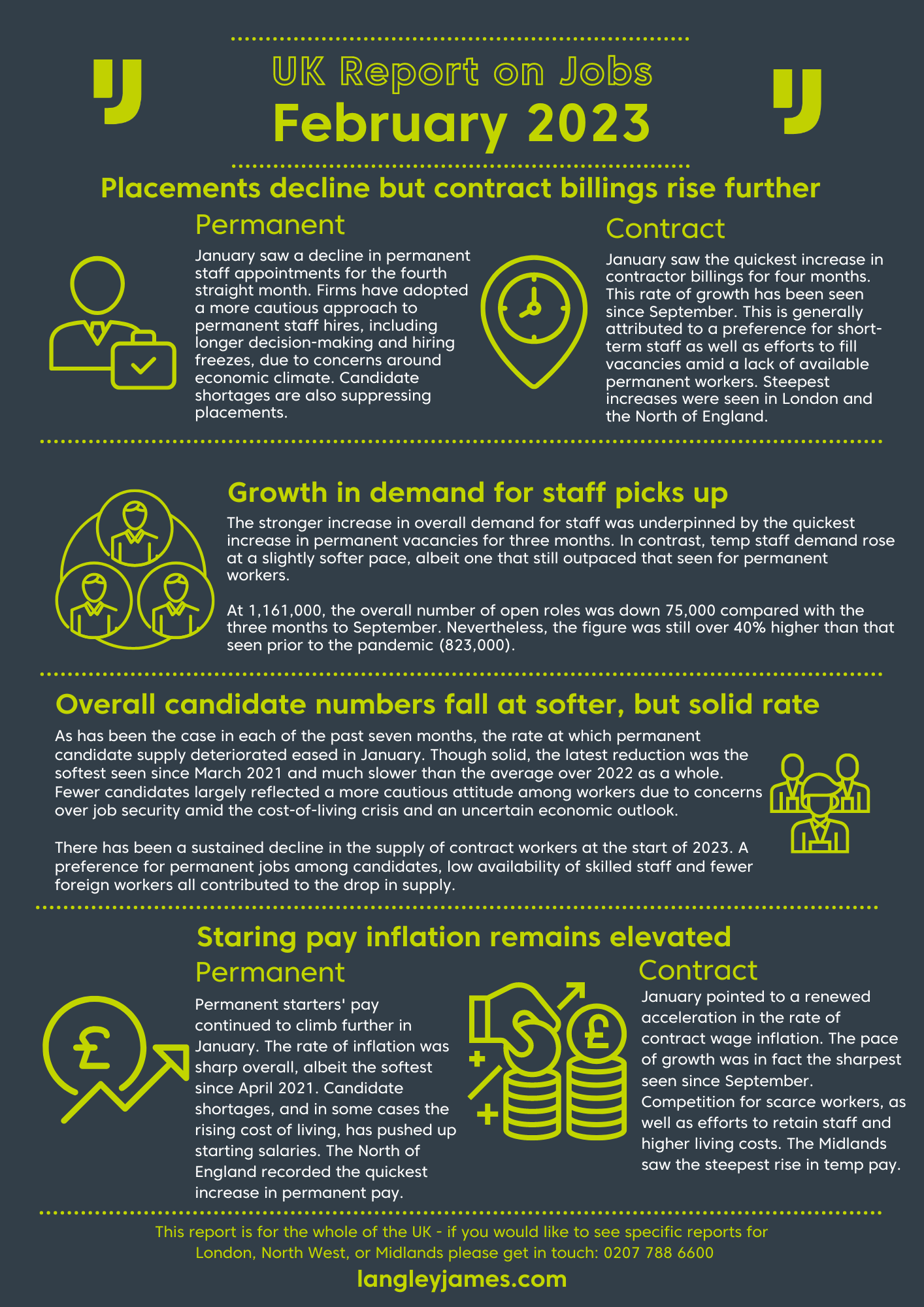

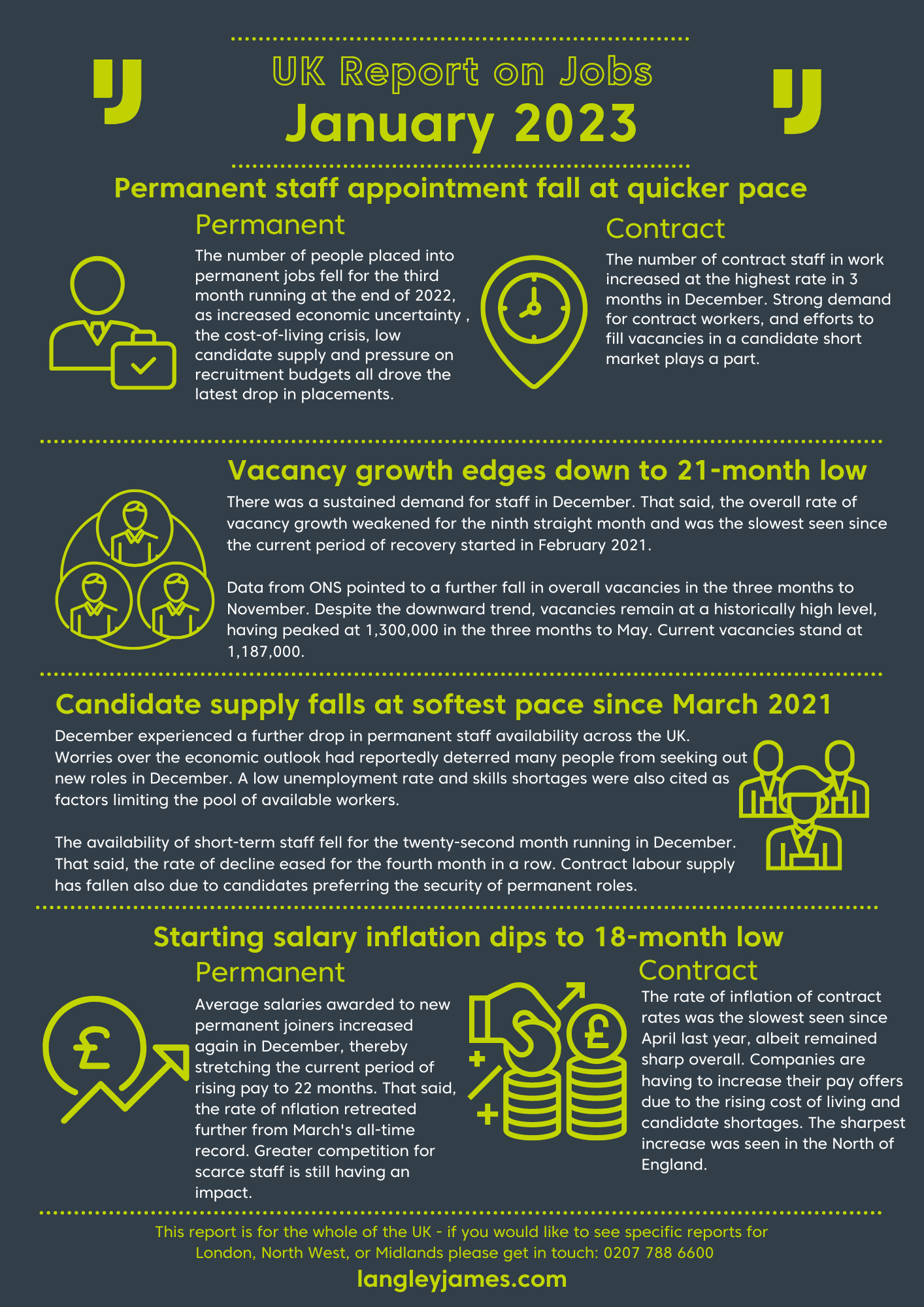

Have you considered your IT Recruitment Consultant to be part of your interview process?
This is the first stage of the interview process.
When you outsource your recruitment to Langley James IT Recruitment, you are outsourcing the early stages of your usual IT recruitment process.
Our Recruitment Consultants will act on your behalf. They will meet, interview and qualify candidates. that may be employed by your competitors in line with the job description you provide, We will make IT recruitment decisions based on the knowledge we have of your requirements. Our IT Recruitment Consultant will represent you and your company.
With that in mind, let us clarify how you can optimise this stage of recruitment to ensure your company is properly represented and your shortlist thoroughly vetted before you meet a single candidate.
If you attempted to recruit directly you might buy some recruitment advertising. Sift through the applicants and select a shortlist using your qualification information. Then, you would invite them to attend an interview where you would explore their suitability against your job description. You’d ask key questions and explain to them what the job is. If you like them, you will probably enthusiastically describe the business and all the reasons why they should join you as you have that knowledge.
Using Langley James IT Recruitment, you will save time. We will be responsible for most of the process allowing you to focus on other business challenges. The information you provide us with at this early stage is crucial to conduct your 1st stage interview to a standard that meets your own.
Pass on all your early-stage qualification questions to your IT Recruitment Consultant. Provide examples of the best possible answers so they can match candidate responses accordingly. Context is important here as you might want specific experience and skill application. For example, when you say Advanced Excel skills, what does that really mean?
Describe examples of how the desired skill might be exercised so our Recruitment Consultants can explore a candidate’s experience with more confidence. Be very clear on what is essential and what is desirable so we can prioritise.

By giving as much information as possible, it will help our Recruitment Consultants represent you and your company in the best possible way. Therefore, the more information we have, the more efficiently we can find you the right people.
Do you ensure that you gain feedback from our Recruitment Consultants before setting up your own interview, Part of our process is to produce a report when we shortlist. Ask for our interview report detailing the reasons why they feel a candidate is suitable. Review the evidence gained form the qualification questions you gave them and build their findings into your own interview plan.
At Langley James IT Recruitment we aim to keep in touch with you throughout the recruitment process. We send out a standard weekly report to update you on our progress – however do feel free to contact us at any time. We understand that things can change, and you may need to refine or change your recruitment priorities and regularly ask for feedback.
Sometimes roles are harder to fill if the salary is not sufficient, the location is non-traditional, or the specification does not sell the benefits of the role. Whatever the problem, do not wait to find out weeks later. Do whatever you can to influence the recruiter interview process and identify changes early.

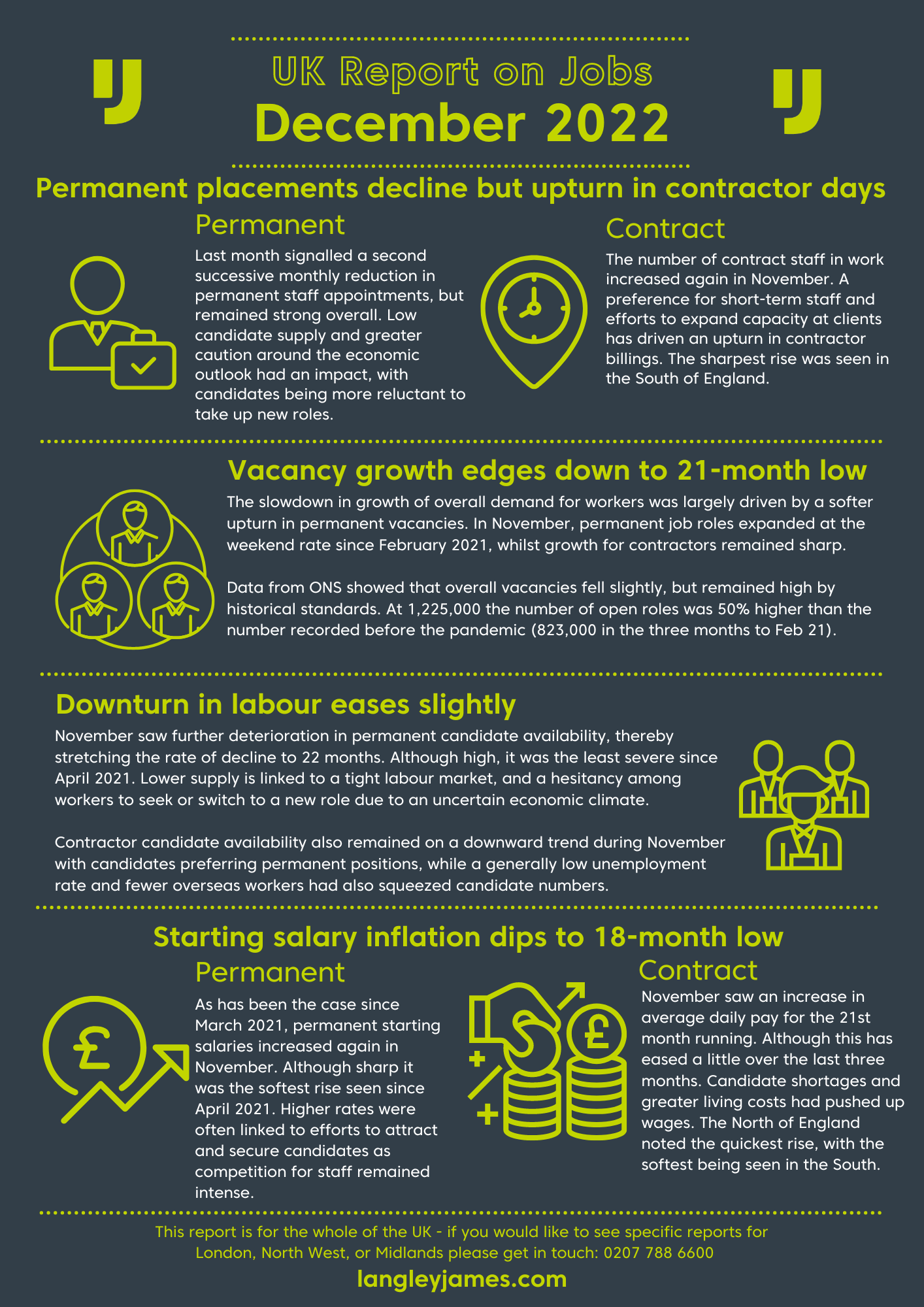

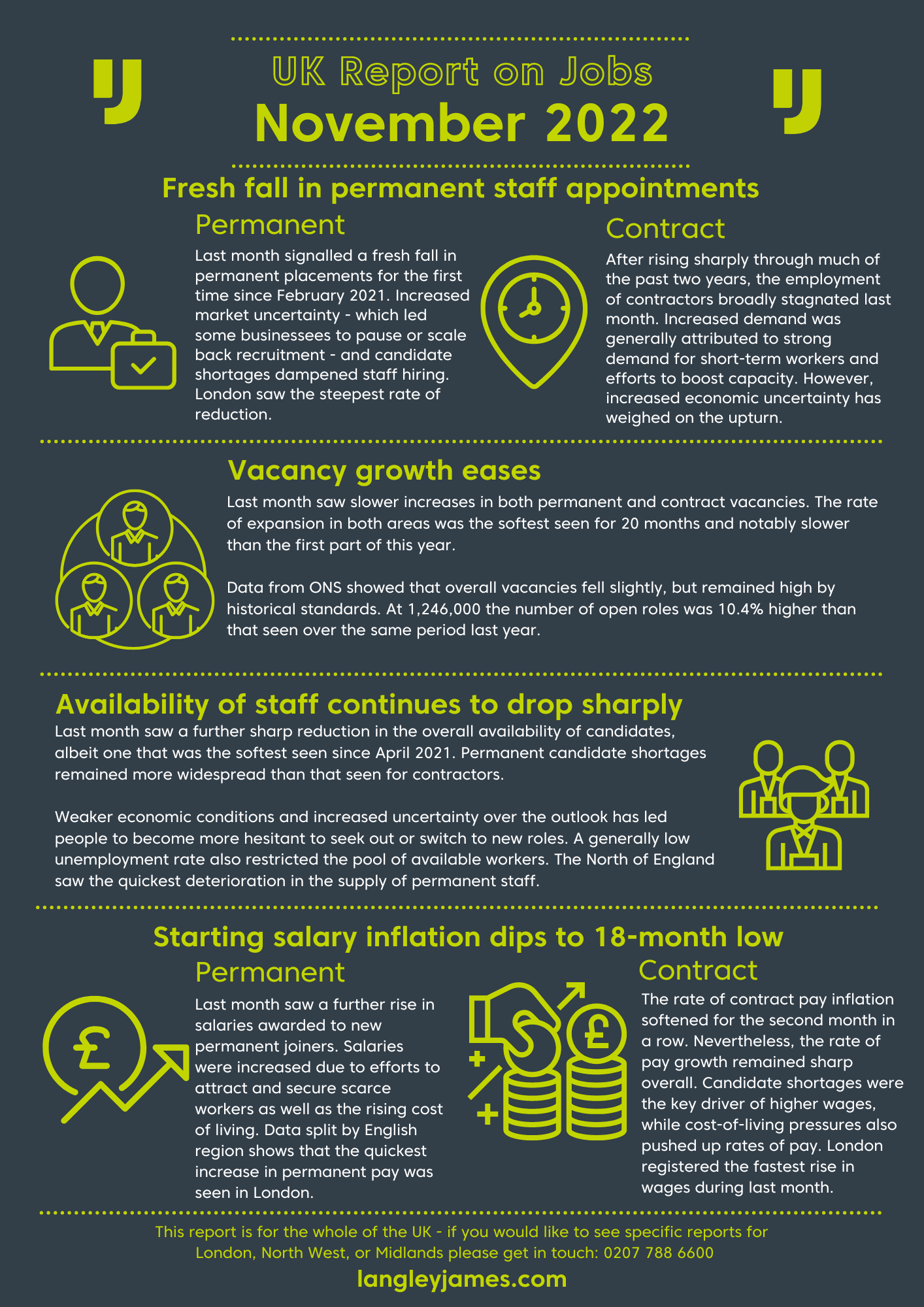

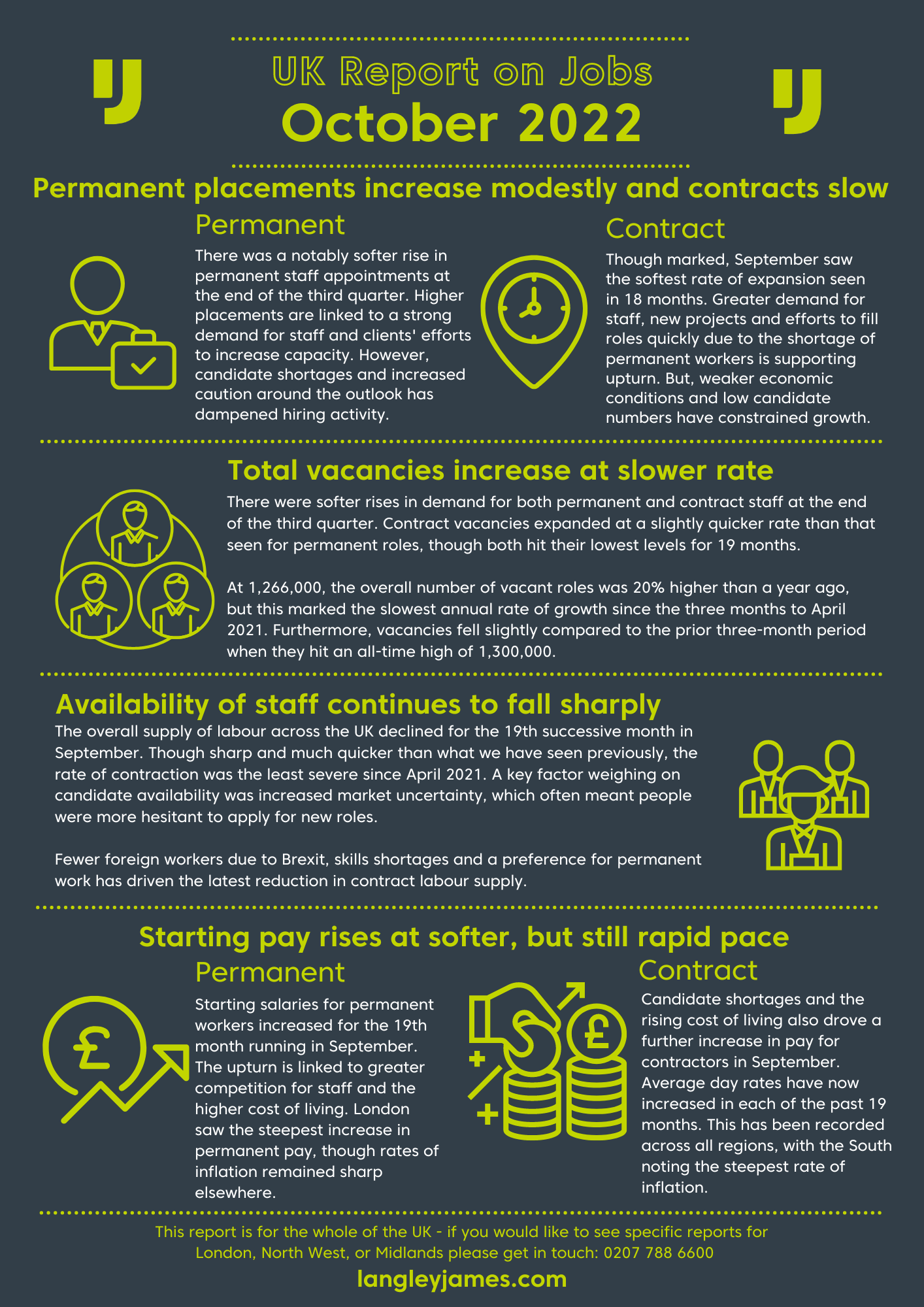

‘Quiet firing’ – are you guilty of it? Could it be the cause of your recent resignations? The internet is currently awash with people talking about quiet quitting. This is when an employee literally does the bare minimum to get by without losing their job. It’s become a common issue of late, especially with companies embracing flexible working. But, it can actually go both ways.
‘Quiet firing’ isn’t actually a new thing. It’s been happening for years. Going unreported and simply being part of the employment landscape. But now it has a name and people are starting to talk about it. Maybe it’s happened to you and you just didn’t realise? ‘Quiet firing’ is essentially when a manager demoralises their employees enough, that they choose to leave. Sometimes, it’s not intentional. And other times, it most certainly is.
When was the last time you took a step back and looked at your current management practices? If, like many other companies, you have gone from managing an on-site team, to managing a part or fully remote team, your management practice has had to change. Even if you haven’t made this transition, there are other issues afoot. With the cost of living incase and desire for career progression, employees are looking for more support than ever from their manager.
This can happen in various ways, such as increasing worlds to unmanageable levels, not responding to requests for promotions or salary increases, or by eliminating opportunities for career growth. But that’s not all. Micromanaging, excluding employees, cutting back hours, or removing soft benefits. All the things will make an employee feel unwanted, under-valued and neglected. And with so many vacancies in the market right now, candidates are in a strong position when it comes to finding a new job.

We encourage companies to look at their management practices and identify any instances of ‘quiet firing’ by poor managers. These are the managers who do not want to invest the time and effort to support, motivate and engage their teams. And sometimes this isn’t intentional. There are time pressures on managers across all areas of IT. It could be that the manager just simply doesn’t have the time to really consider the wellbeing of their team. These trends are causing concern for HR teams who are trying to recruit and retain talent in a tight job market.
Interestingly, there is a distinct connection between ‘quiet firing’ and ‘quiet quitting’. If there are members of your team who used to do well but are now showing signs of doing as little as possible, ask yourself this. Why? What is it that has made them feel so disengaged that they have lost to desire to do their very best? People don’t leave jobs that they feel supported in. Jobs that pay sensible salaries, a work-life balance and offer opportunities for career progression.
This year has seen a 24% increase in internet searches for “how to fire someone” compared to last year! And, as much as a 180% increase in the term “when to fire someone”. And with the current skills shortage, it’s surprising to see these increases.
Stop quiet firing, and you’ll avoid quiet quitting!
We have been helping companies to attract and retain the very best IT talent since 1999. But we don’t just simply find the best candidates. We can advise you on the current jobs market conditions. Share data on average IT salaries. Talk to you about the benefits that candidates are looking for. In fact, we do everything we can to help ensure that you get the very best people for your team. Get in touch with our team to find out how we can help you to recruit the best!
Recent Comments